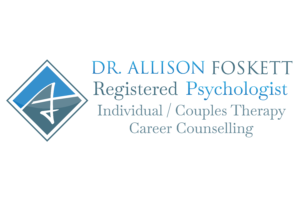Treatment for Depression in Edmonton
As a registered counselling psychologist in south Edmonton I receive many requests from clients to begin treatment or therapy for their depression.
What is Depression?
Feeling depressed has many ways of showing up in our lived experiences – from occasional low mood also referred to as the “blues,” right through to a more intense and persistent presentation which we sometimes refer to as clinical depression or major depressive disorder (MDD).
Did you know that major depression will impact 1 in 8 Canadians throughout the course of their lifetime?
It impacts our thoughts, emotions, behaviours and how we feel in our bodies.
Depression has no limits – it impacts people of all socioeconomic classes, ages and genders. High functioning people and those who seem to “have it all together” on the outside, or choose to not disclose their internal struggles can also experience depression. It is not always visible to others.
It is often diagnosed twice as often in women compared to men. This might be due to several reasons including women reaching out for support more often. It might be related to hormonal changes, relational stressors, adverse childhood events, domestic violence or various pressure to balance many demanding roles throughout the lifespan.
Sometimes higher functioning people can minimize their symptoms or be in denial about their mental health. They might feel shame or uncomfortable naming their experience as depression or they think they shouldn’t feel depressed given everything they are grateful for in their lives. The stigma around depression (and many other psychological concerns) is still common.
Other folks have difficulty reaching out for help or admitting they need support. This can be for a variety of reasons. For some people, they already have a good support system and social circle. Others might feel that they should already know, or that they do know, what they need to do to feel better. These are just a few reasons some believe they don’t need treatment for their depression.
Symptoms of Depression
Depression can present in various combinations of symptoms and various levels of intensity ranging from mild to severe. Some people talk about feeling in a dark place, not themselves, or simply “not well”. Key symptoms of depression might include:
- Depressed, low, or irritable mood; crying
- Feeling worthless, empty, sad, or hopeless
- Difficulty concentrating or making decisions
- No longer finding pleasure in activities that were previously enjoyable
- Loss of interest in sex
- Withdrawing from friends, family, and communities of interest
- Fatigue or loss of energy
- Somatic complaints such as stomach issues
- Thoughts that life isn’t worth living or suicidal thoughts
- Insomnia or difficulty sleeping, or, hypersomnia (oversleeping)
- Weight loss or gain, or, changes in appetite
- Psychomotor agitation (e.g., pacing, tapping, restlessness, inability to settle in/get comfortable)
In your first intake session, I will ask you about which symptoms you are experiencing and how you are being impacted by the various stressors in your life. Click here to learn more about what your first counselling session for depression treatment might entail.
Crisis Resources
Please note: If you are in crisis, experiencing suicidal thoughts, or are planning on hurting yourself please use the following resources:
1) Call 911 or take yourself to the closest emergency room if you are in imminent danger.
2) Contact Access 24/7 which is as a central intake point within our Edmonton community. They offers various urgent mental health services including assessment and crisis interventions. They will direct you to the most appropriate resources within the Edmonton area. Their address is: 10959 102 Street NW, Edmonton, Alberta, T5H 2V1
Phone: 780-424-2424 https://www.albertahealthservices.ca/findhealth/Service.aspx?serviceAtFacilityId=1122569
3) Edmonton Distress Lines
https://edmonton.cmha.ca/programs-services/distress-line/
Call: 780-482-HELP (4357). If you’re outside of the greater Edmonton region, call the Rural Distress Line at 1-800-232-7288. They also have an online crisis chat available on their website.
Get the Facts on Suicide
Learn more facts about suicide by watching this video created by the Canadian Psychological Association (CPA):
Try a free online screening for depression
Take an online screening tool for depression here: https://screening.mhanational.org/screening-tools/depression/ This is not a formal diagnostic tool but simply a screening tool to begin to explore and understand if you might potentially have some symptoms of depression.
Risk Factors of Depression
There are many different risk factors for depression including genetics, adverse childhood experiences, life stressors, trauma, loss, change & transition, and medical illness, to name a few. Depression has a substantial genetic component in which the heritability is estimated to be about 40%.
Depression Treatment – Edmonton Registered Psychologist
There are many different psychological treatments for depression. A key approach that I integrate into my practice and treatment of depression is Cognitive Behavioural Therapy (CBT).
This is an evidence-based and highly effective treatment based on hundreds of clinical studies. It has been shown to be helpful for many psychological disorders such as depression and anxiety.
CBT for Depression Treatment: A few of the key components
- Generally focuses on the present (while still addressing issues from your past as needed)
- Works with your patterns of thinking and helps “re-wire” your thinking styles to help you achieve better mental health, wellness and performance in your life
- Is goal-oriented and strives for making behavioural changes
- Involves problem-solving situations in your life
- Emphasizes your strengths and ways in which you are progressing over time
- Provides psycho-education so you can leave therapy by gaining practical skills
- Offers you concrete strategies and techniques that help you change the way your brain works, and may lead to changes in how you feel and behave.
Sessions are collaboratively adapted to your own unique needs rather than being a manualized approach. You can read more about CBT here: https://beckinstitute.org/about/intro-to-cbt/
How Frequent are Sessions?
You get to decide on the frequency of your sessions. I recommend that you attend sessions weekly for a minimum of the first 2-3 sessions while we are building our therapeutic relationship, exploring the issues, developing our treatment plan, and beginning with some key interventions and strategies to help you reduce your depression symptoms.
From here, folks typically attend sessions every other week, or every third week. You are in control of what works best for your schedule and your budget. When people feel they have made progress, they might book a session once a month or email me as needed.
Other Treatment Approaches to Depression
I also integrate other approaches into my treatment of depression by drawing on Person-Centred Therapy, Emotion-Focused Therapy, Acceptance and Commitment Therapy (ACT) also Eye Movement Desensitization Reprocessing (EMDR) therapy.
In addition to working with a registered psychologist (or other licensed mental health provider) sometimes it is helpful for folks to work closely with their family doctor and/or psychiatrist to identify, treat, and rule out any medical issues that might contribute to, or exacerbate depression (Please note that I do not specialize in formal assessment and diagnosis). Are you looking for a family doctor and unsure how to access one?
How to Find a Family Doctor
- Primary Care Networks – https://albertafindadoctor.ca/
- College of Physicians and Surgeons of Alberta (CPSA): https://search.cpsa.ca/physiciansearch
- Call Health Link by dialing 811
Looking for a Psychiatrist in Edmonton?
If you choose to access a psychiatrist, you will need a referral from your medical doctor. What does a psychiatrist do? They are medical doctors with a specialization in assessment, diagnosis and treatment (including prescription of medications) of mental health issues, specifically.
Please note that I (as a registered counselling psychologist) do not prescribe, recommend, or provide advice on medication.
Learn more about depression by watching this video created by the Canadian Psychological Association (CPA):
If you are interested in working with me, please call (780)-803-1825 or email me at allison@diamondcareercounselling.com to learn more about how the process works and set up your initial appointment.

You can learn more about me by clicking here.

